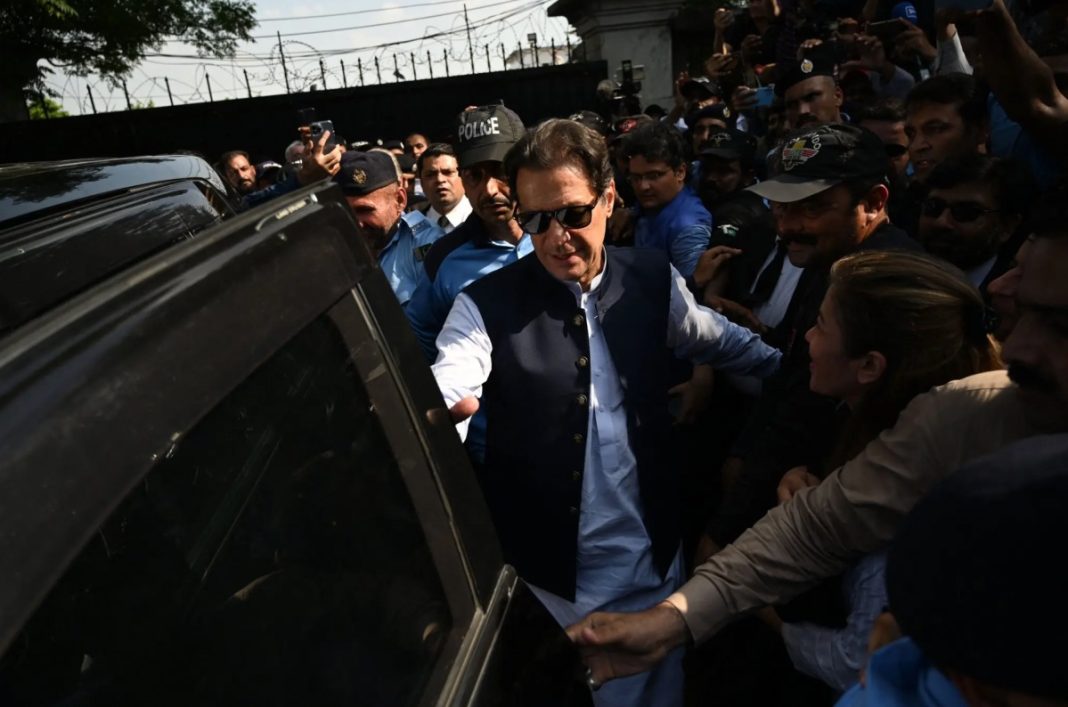ISLAMABAD, Pakistan — Pakistan’s former prime minister, Imran Khan, has been arrested on Tuesday, May 9, 2023 in a dramatic escalation of a political crisis that has been brewing since his removal from office last year.
The arrest, which took place during a court hearing in Islamabad, threatens to trigger widespread unrest.
Mr. Khan, a populist figure and former cricket star, has made a robust political resurgence since his removal from office last April.
His party, Pakistan Tehreek-e-Insaf, or P.T.I., has rallied tens of thousands to political events across the country, fueling demands for fresh elections and accusations against the military establishment of orchestrating his ouster.
The arrest came on the heels of a strong statement from the Pakistani military, accusing Mr. Khan of making false allegations against a high-ranking intelligence official. The former prime minister faces numerous court cases, with charges ranging from terrorism to corruption.
Mr. Khan and his supporters contend that these accusations are part of a strategy by the current Prime Minister Shahbaz Sharif and the military to remove him from the political scene. Both political and military leaders have consistently denied these allegations.
“ It is not humanly possible to make court appearances in such a vast number of cases,” said Fawad Chaudhry, a top aide to Mr. Khan. He argued that threats to Mr. Khan’s life had made court appearances increasingly precarious.
Mr. Khan’s popularity seems to have grown despite, or perhaps because of, the ongoing drama. His party won substantial victories in local elections in Punjab and Karachi last summer. Analysts see these political victories as a response to the worsening economic conditions and a rebuke to the military establishment, which has long held significant sway over Pakistani politics.
However, Mr. Khan’s successes have led to an intensified crackdown on him and his supporters. Journalists sympathetic to Mr. Khan have reported harassment, and live broadcasts of his speeches have been banned from news television channels.
Once closely aligned with the military during his tenure as prime minister, Mr. Khan’s relationship with the institution has soured. Since his ousting through a parliamentary no-confidence vote, his accusations against the military have become increasingly pointed.
His widespread popularity suggests a shift in the dynamics of Pakistani politics. Analysts believe the usual tactics for sidelining political leaders may no longer be effective in the age of social media.
The arrest of Mr. Khan is feared to exacerbate the already tense political climate in the country. His aides have warned that this could ignite mass unrest, potentially bringing Pakistan to a standstill. As the situation unfolds, the world watches closely, apprehensive about the potential consequences for this politically volatile nation.







